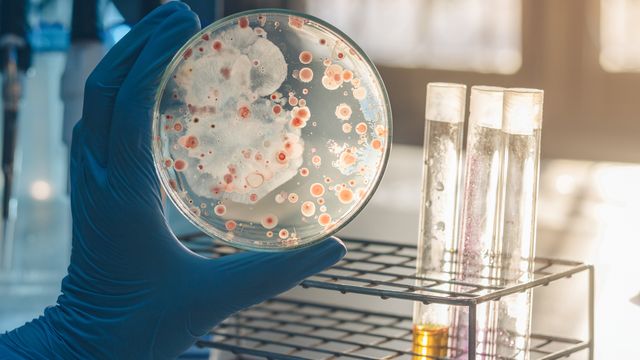Soil Microbiology Culture Testing in Agriculture
In agriculture, soil microbiology culture testing plays a crucial role in understanding the complex microbial communities that influence plant growth and overall agricultural productivity. This service involves isolating, identifying, and quantifying microorganisms present in soil samples to assess their diversity and activity.
The process begins with the collection of representative soil samples from various fields or plots. These samples are then transported under controlled conditions to ensure minimal disturbance of the microbial community. Upon arrival at the laboratory, each sample undergoes rigorous preparation steps including aseptic techniques to prevent contamination.
Microorganisms such as bacteria, fungi, and other micro-organisms are isolated using selective media tailored for specific groups or genera. These media promote growth while inhibiting unwanted contaminants. Once isolated, cultures are identified based on morphological characteristics, biochemical tests, and molecular methods where necessary.
The quantification of these microorganisms is essential to determine their abundance within the soil ecosystem. This can be done through colony-forming unit (CFU) counts or other quantitative techniques depending on the type of microorganism being studied. Understanding the composition and quantity of beneficial versus pathogenic microbes helps in developing targeted management strategies.
The results generated from this testing are invaluable for several reasons. They provide insights into soil health, which directly impacts crop yields and sustainability practices. By identifying key players like nitrogen-fixing bacteria or decomposers, farmers can make informed decisions about fertilization needs, pest control measures, and sustainable farming practices.
Moreover, this testing aids in monitoring the effectiveness of various agricultural treatments over time. For instance, after applying organic amendments or implementing new irrigation techniques, retesting allows us to assess changes in microbial communities and their potential effects on soil fertility.
Standard procedures for conducting these tests are governed by international standards such as ISO 17295:2013 which provides guidelines for the enumeration of microorganisms in soil. Compliance with these standards ensures consistency across different laboratories, enhancing reliability and comparability of results.
Industry Applications
| Application Area | Description |
|---|---|
| Crop Yield Enhancement | Determining beneficial microorganisms that enhance nutrient availability and improve plant health. |
| Environmental Monitoring | Tracking changes in microbial communities due to environmental interventions or natural processes. |
| Farm Management | Providing data for precision agriculture and sustainable farming practices. |
Quality and Reliability Assurance
The reliability of soil microbiology culture testing is paramount in ensuring accurate assessment of soil health. Our laboratory adheres strictly to ISO standards, employing advanced technologies like PCR-based sequencing for more precise identification.
We maintain strict quality control measures throughout the entire process from sample collection through final analysis. This includes regular calibration of instruments and validation of reagents used during culture isolation and identification stages.
Our team consists of highly trained professionals who possess extensive experience in microbiology and soil science. They ensure that each step adheres to best practices, thereby minimizing errors and maximizing accuracy in results.
The use of standardized protocols and adherence to international standards guarantees consistency and repeatability of our findings. This not only enhances credibility but also facilitates effective communication between different stakeholders involved in agricultural projects.
Customer Impact and Satisfaction
- Improved Crop Yields - By understanding the microbial community, farmers can implement strategies that optimize nutrient uptake leading to higher yields.
- Sustainable Farming Practices - Knowledge about soil health allows for adopting practices that protect ecosystems while increasing productivity.
- Precision Agriculture - Detailed information helps in tailoring interventions precisely according to field requirements rather than applying uniform treatments across large areas.
- Enhanced Decision Making - Accurate data supports better decision making regarding input costs, resource allocation, and overall farm management.





